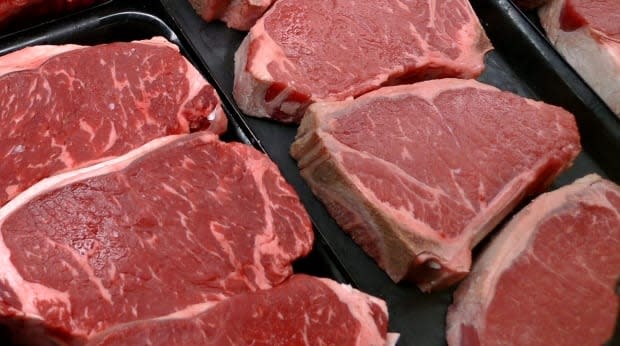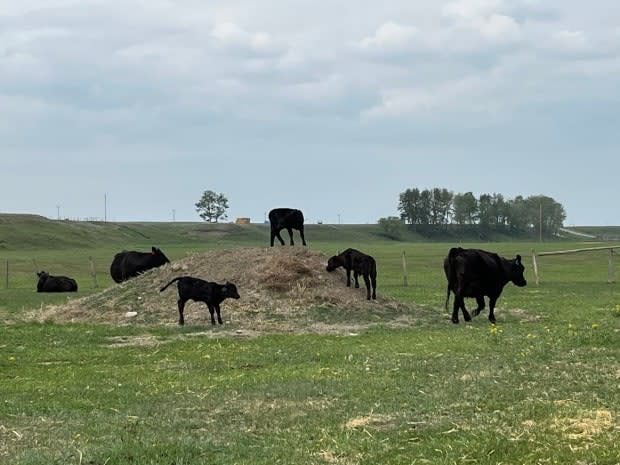There are fewer cows around and that's partly why your beef is so expensive

With inflation fuelling high grocery prices, a little bit of sticker shock has become customary to many Albertans. But in the midst of grilling season, the prices of steaks and beef kebabs are higher than normal — something an industry executive says is likely to stick around for a while.
John Wildenborg, owner of Master Meats butcher shop in Calgary, said the price of steak is way up, specifically tenderloin. Wildenborg said an eight ounce steak that was around $30 last year is now closer to $50.
Even cheaper steak cuts, like sirloin, are up nearly 20 per cent from a year ago, he told the Cost of Living.
"I have never in my 30-plus years seen a market like this. It is just absolutely crazy and there is no easy, quick fix for it," Wildenborg said.
LISTEN | It's BBQ season, but steak prices may leave you feeling burned:
Bone dry conditions across the Prairies and elsewhere in North America in the past two years means that prices for feed have shot up.
That's partly what has caused the North American beef herd to enter a phase of "liquidation," said Brenna Grant, executive director of Canadian beef statistics firm CanFax.
"The U.S. herd peaked in 2019 and started shrinking. So we're in a liquidation phase and droughts hit western Canada in '21," she said.
"So we start shrinking, drought hits the U.S. in '22, and what actually happens is that then prolongs liquidation."
Liquidation is when ranchers send their cows to slaughter instead of holding onto them to grow their herds. It's normal for herds to shrink and expand based on market demand, but this shrinking trend has been going on for longer than usual.
In January North American beef cow inventories were the smallest they've been since 1962.
And in April, Grant said, production plunged 12.5 per cent.

"That was when things got real in Canada," she said.
"We need to recognize that all prices in a free market are set by supply and demand. And you may be saying, 'hey, hey, hey, my demand hasn't changed. I've been stable with whatever I've been buying for the last two years.'"
Grant said that demand hasn't changed, but its the supply has and it will continue to do so.
"That part hasn't changed. It's the fact that supply has changed and is continuing to change."
She said what happens next depends on whether or not North America gets enough rain this summer.
In a best case scenario, Grant said, if there is rain then ranchers will retain their heifers and there will be a slight uptick in production — in the second half of 2025.
That's because a cow born today won't be on a dinner plate until 2025.
That's the projection if it does rain enough.
"What's going to be different is if we don't get rain this summer, we are looking at a longer time frame of tighter supplies," Grant said.
"Which leads to higher prices for a longer period of time for consumers."
And despite higher prices — demand for beef is still high, Grant said. She thinks that's because more people started cooking at home during the pandemic, and that's what's influencing buying habits.
"Consumers, not just in North America, but around the world, found out how much further their food dollar goes at retail," she said.
"When people can cook at home, cheaper, and have a satisfactory eating experience, quite frankly, you can actually buy more beef."
That's going to have an impact on the price of red meat for a long time.

'We're doing the best we can': Rancher
Among the ranchers culling their herd is Highwood Valley Ranch's Wade Nelson. This year he's focusing on growing crops like wheat, peas and oats.
"If it stays dry for two more years, can I still be doing this? ... We've had two years of really tough years," he said from his operation south of Calgary.
"Whether this is some sort of this is a precursor of climate change or whatever. For a farmer, it doesn't matter how long this is going to last. It's just what's in front of him, and we're doing the best we can," Nelson said.


